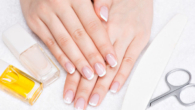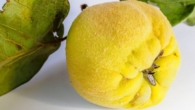
A true remedy for a hangover has been found
< /p> 0
A group of British scientists published a paper on hangover drugs, reports Forskning. The researchers have one specific recommendation, however, not everyone will like it.
A research group led by Emmert Roberts (Emmert Roberts) from King's College London, wanted to find out if there are any scientifically proven means by which we could ease our condition the day after a feast.
Some of the research papers reviewed by the experts showed promising results.
However, the 21 placebo-controlled studies that the scientists reviewed again had many glaring flaws. For example, many experiments involved only men, and none of them involved people over the age of 65. All experiments had few participants.
None of these studies focused on the same agent. That is, none of the remedies have been studied twice by different scientists.
Thus, it seems that we still cannot name any effective remedy that science would approve as a real hangover cure. Getting hungover for the so-called “rehab” seems to be actually useless too.
“The smartest thing to do is to drink moderately or not at all,” Emmert Roberts told The Guardian. According to the scientist, in order to avoid a hangover, one must avoid alcohol intoxication itself.
Hangovers cost society dearly
Parties of citizens and their consequences on the next day every year cost society a lot of money.
According to the Norwegian Center for Substance Abuse and Dependence in the Workplace, Norway loses 1.1 billion kroner annually due to employee inefficiency or absence from the workplace due to alcohol use.
p>
Studies show that one in four of us have gone to work hungover or performed poorly after drinking too much the night before.
The U.S. Centers for Disease Control and Prevention estimates that the U.S. loses $220 billion a year due to hangovers of citizens, and 72% of losses are related to poor productivity at the workplace.
Professor David Nutt (David Nutt) from Imperial College London, a former adviser to the British authorities on intoxicants, says that hangovers are a serious social problem for the British as well.
“Hangovers are probably one of the least studied health problems. And it costs the UK more than £10 billion a year,” he said.
Water doesn't help either
Roberts says drinking water, of course, it can help in some way, but it does not give any guarantee against a hangover.
Dutch scientists studied whether there is any connection between drinking water and hangovers, and got the same result. The only thing that will definitely save you from a hangover is to reduce your alcohol consumption or completely avoid it.
Water can help with dehydration, that is, save you from thirst, dry mouth and similar symptoms that you may have. after a hot evening. But water doesn't help with the worst hangover ailments.
Three potential cures that stand out from the rest
Although all available studies have been weak, British scientists believe that clove extract, tolfenamic acid and pyrithinol deserve additional attention. . But clove extract was tested only in one scientific paper and only on 16 participants of the experiment. So it is premature to draw conclusions, scientists believe.
The same applies to tolfenamic acid, for which positive results were obtained in a small study with the participation of only 30 people. Tolfenamic acid is an anti-inflammatory and pain reliever used to treat migraines.
Only 17 people participated in trials to see if the drug pyrithinol could fight hangovers. Pyritinol has long been used as a treatment for Alzheimer's disease and dementia.
Clove extract stands out from the three because it is a dietary supplement, not a drug. So it's easier to get.
Maybe that's why Roberts himself bought himself a bottle of clove extract before the New Year.









Leave a Reply